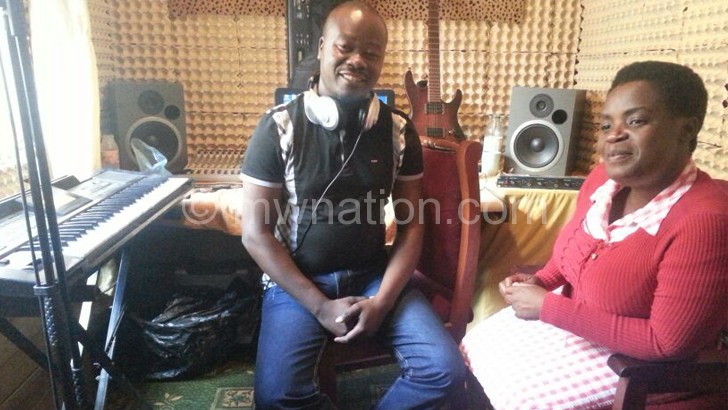No female producers
Sex sells. And the secular music industry worldwide has taken advantage of this to sell its music. Little wonder, females have, for a long time, been reduced to sexualised commercial objects; either as ‘dancing queens’ or backing vocalists. Few take up leading roles on the stage.
Behind the music scene, where the bulk of music is produced, female representation is even worse. Most estimates indicate that women make up less than five percent of producers and engineers industry-wide.

Locally, Malawi is yet to have a female music producer despite having numerous music studios, even in the most unusual of places.
Musician Wendy Harawa cites a hostile music environment for women as a factor for the status quo. She says most promoters ask for sex in return for various music services. And, if such favours are not given, ladies are not supported.
“People don’t look at a female as an artist. They look at us as sex objects for their own gains. For example, I have cases with DJs who would not play my music or individuals in offices who would not render any help just because I didn’t comply with what they wanted from me,” says Wendy, who broke to fame with her first solo album Nowa Kusowa in 2001.
Unlike the gospel music industry which is flooded with females, the story is different with secular music. It is characterised by male voices, although, in recent years, more women are coming out of their shells.
Whereas various cultural values, social discrepancies and economic staccatos are hampering advancement of women in music, Wendy observes that attitude of people towards female artists is also to blame.
“In Malawi, it’s a taboo for women to venture into secular music, more especially stage music. They look at us as people without morals. Consequently, most talented women are in hiding,” she says.
Harawa says this can be solved if more record labels would come up to support artists in the industry.
“We need record labels that would conduct business on our behalf. Otherwise, female artists are vulnerable to work independently,” she observes.
Although Harawa heaps the blame on the outside world, Music Crossroads Academy administrator Vincent Maluwa thinks the female artists themselves are to blame for the gender imbalance in the industry.
He says there is little willingness on the side of women to enrol for professional music courses in music production, sound engineering and music management among other courses.

“Due to this unwillingness, we have introduced a recruitment policy to enrol at least 25 percent females in our intakes. Our goal is to have a 50:50 representation although we know that it’s difficult to achieve. The aim is to empower women and fight gender discrepancies that hinder women in taking up roles such as music production and engineering,” says Maluwa.
He however says female students who take up courses in music production and engineering at the academy perform almost the same as their male counterparts.
“There is an issue of awareness and attitude. Women think music producing is an issue for men. This is fueled by existing stereotypes that tag women to be subservient to men.
“Nonetheless, as an academy, we have learnt with great satisfaction how the female students who registered with us are fairing in their music studies. With reference to the previous Sound Engineering Workshop that happened in April this year at the academy, female participants showed as much potential, understanding and ability as their male counterparts,” explains Maluwa.
On the way forward, Groove Magic producer Joseph Tembo says the most important thing is to change the mindset that people have towards female artists.
“There is a misconception of who a producer is, and some women think music production is a job for men. It needs to be noted, however, that in the studio we have various roles such as station artist, sound engineer and producer. All these can be done by a female. There is nothing magical about them,” he says.





